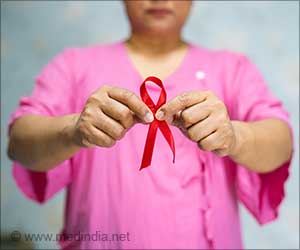Scientists from UT Southwestern Medical Center have suggested a novel therapeutic strategy that would completely eradicate lung cancer.
Scientists from UT Southwestern Medical Center have suggested a novel therapeutic strategy that would completely eradicate lung cancer.
Researchers Pier Paolo Scaglioni and Georgia Konstantinidou have shown that using an investigative drug called BEZ235 in combination with low-dose radiation successfully eliminated non-small cell lung (NSCL) cancer in mice."These early results suggest that the drug-radiation combination might be an effective therapy in lung cancer patients," said Dr. Scaglioni.
NSCL cancer cells often harbor mutations in a gene called K-RAS. Patients with such K-RAS mutations typically are more resistant to treatment with radiation and have a poor prognosis.
K-RAS mutations lead to the activation of networks, or pathways, of several so-called signaling proteins, which in turn play key roles in the regulation of tumor growth. One of these proteins, called PI3K, is activated to keep cells alive that have sustained DNA damage.
Several components of the signaling pathways, including PI3K, have been investigated as possible anti-cancer drug targets. The investigational drug BEZ235 is currently being tested in clinical trials against PI3K and another signaling protein called mTOR.
To date, no effective targeted therapy exists for NSCL cancer tumors that harbor K-RAS mutations," said Scaglioni.
Advertisement
"We stressed the cells in such a way that they needed this signaling pathway to survive. Without the PI3K response, they will die," said Scaglioni.
Source-ANI
ARU













